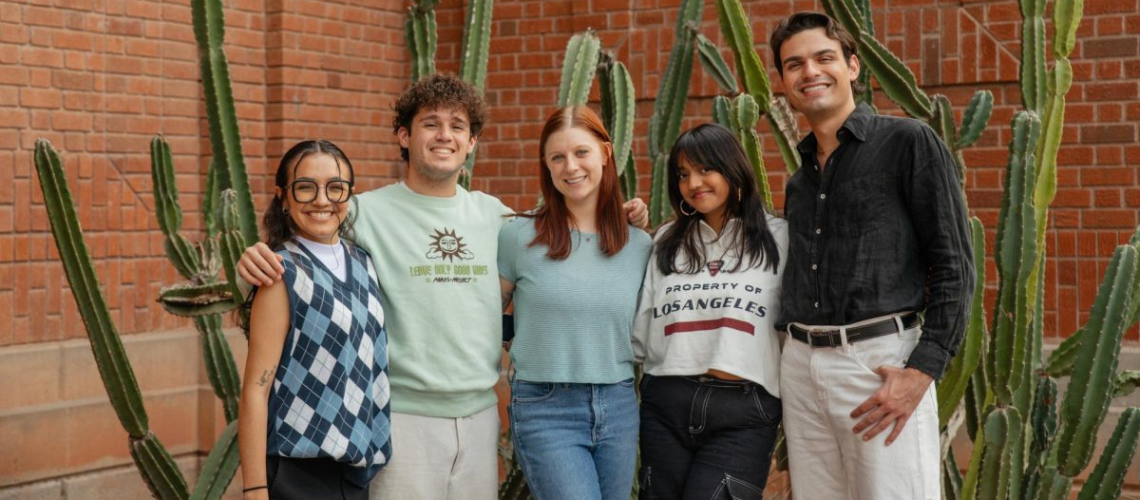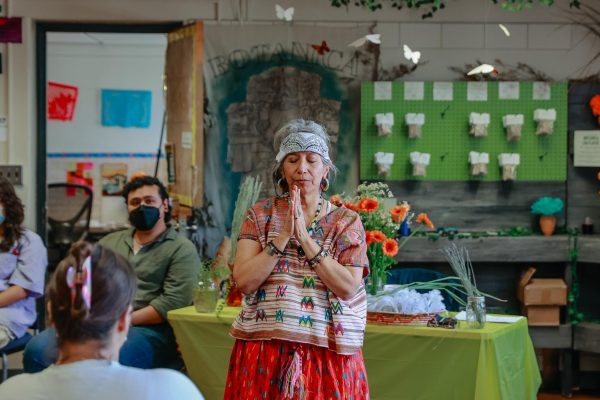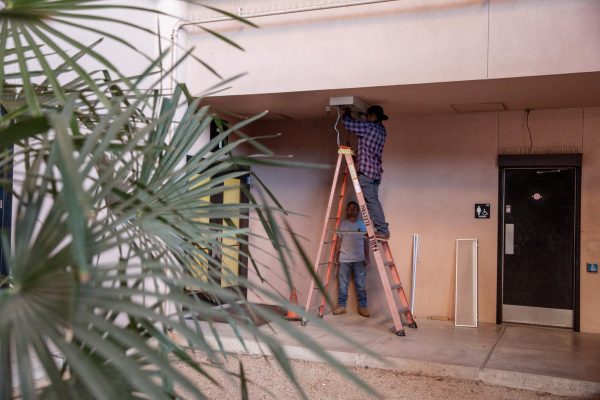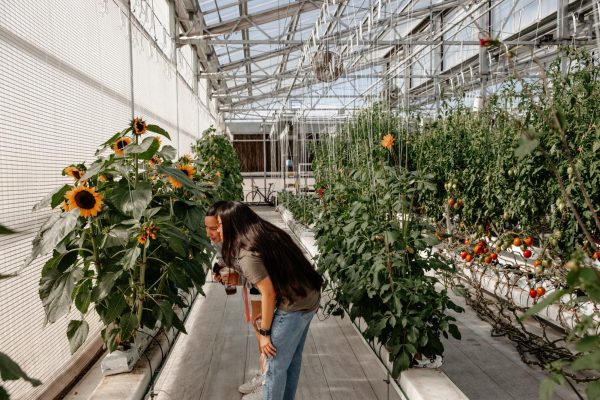
Read the full article on Arizona Sonoran News
Article by Lizzy Sorensen, 2024. Photos by Tawni Eakman, Office of Sustainability.
As the University of Arizona grapples with ongoing financial challenges, one area that hasn’t been impacted is the Campus Sustainability Fund.
The fund is supported by student fee dollars, which are protected from university-wide budget cuts.
“The financial reality of the university does not impact our program,” said Emily Haworth, the fund’s coordinator. “If anything, it shines a brighter light on the value of it.”
Haworth said she anticipates that the fund will become even more vital in the coming years as departments seek additional support to carry out their sustainability initiatives.
“We are going to probably see an influx in applications from people who have never thought about applying to us before,” she said.
Since its introduction in 2021, the fund has supported 43 projects and allocated $1.26 million.
The Campus Sustainability Fund provides funding opportunities for sustainability-based projects on campus and is run out of the Office of Sustainability, with a committee of five student employees reviewing applications and allocating grants.
“It’s an opportunity for people to utilize on-campus funding sources to envision, plan and manage a project that has a sustainability impact,” Haworth said.
The fund is accessible to students, faculty and staff, offering annual grants for larger projects and mini grants for smaller initiatives.
The application process is highly collaborative. Every committee member holds office hours to assist applicants, guiding them through the proposal process.
“Anybody can join and talk about an idea they have and how they can expand it, or get help with the grant application in general,” said Genesis Herrera, a student on the committee who is majoring in information science and serves as the fund’s communications and web content specialist.
Haworth said that despite the potential increase in demand, the fund remains committed to its core values and mission, ensuring that funded projects continue to add value to the campus community.
“We have this incredible opportunity to fund and support things that otherwise might not come to fruition on this campus, especially in the budget reality we are in,” she said.
The fund is accepting annual grant proposals from Nov. 18 to Jan. 26, 2025 and mini grant proposals from Jan. 27 to Feb. 16, 2025.
Here are three projects funded through the Campus Sustainability Fund.
Rooted Remedios: A cultural and social sustainability initiative

Rooted Remedios, which was given $98,100 in spring 2024, created botanica stations in the Women & Gender Resource Center and the Adalberto & Ana Guerrero Student Center, where students can access Indigenous medicines like teas, oils and salves.
The project also includes workshops led by Indigenous practitioners, ensuring that the cultural roots of the medicines are preserved and shared authentically.
“The project is creating a lot of cultural connection within the campus and the students that attend, staying true to the root of Indigenous medicines by bringing in Indigenous practitioners,” said Herrera.
The program not only fosters cultural exchange but also supports student leadership, with two graduate assistants and four undergraduate students leading the effort. For many involved, the project has been deeply personal.
“A lot of those student workers have expressed how grateful they are that they are able to do this,” said Herrera. “They never thought they would’ve had a position where they can work on something that’s close to their culture, or close to a culture they are interested in.”
Harvill Lighting: Energy efficiency in action

The Harvill Lighting project received $39,300 in 2023 for a project that blends sustainability with energy efficiency and cost savings.
Led by three students from the Energy and Climate Committee within Students for Sustainability, the project replaced outdated fluorescent lights in the Harvill building with more efficient LED fixtures. The students conducted a lighting audit across campus, identifying the Harvill building as an ideal candidate due to its deferred maintenance needs and high usage.
By replacing 972 fixtures with LED lights, the project improved the learning environment and provided significant energy and cost savings for the university.
For project manager Sam Gibbon, the experience was transformative.
“The thing that I gained the most was real-world project management skills,” he said. “It’s one thing to hear about what it takes to manage a project, it’s another thing to actually do it before you have to go into a career.”
Gibbon, a junior studying economics and mathematics, credits the Campus Sustainability Fund with providing the support necessary to bring the project to life, from idea generation to navigating roadblocks.
“They provide a lot of unique opportunities for students that I don’t think they would otherwise have,” he said, emphasizing the professional development opportunities that come with leading a funded project.
Nurturing Plants: Indigenous knowledge meets climate science

Besides annual and mini grants, the Campus Sustainability Fund partners with the Agnese Nelms Haury Program in Environment & Social Justice to offer Indigenous centered mini grants.
The Nurturing Plants project, which received $5,000 in funding, focuses on hands-on education through a cohort-based program led by Ph.D candidate Breanna Lameman. Participants in the program learn about hydroponic growing systems through an Indigenous lens, integrating Diné cultural practices into the study of spiritual health and environmental sustainability.
Designed to bridge the gap between climate science and Indigenous knowledge, the project offers a unique perspective on how sustainability can be practiced in everyday life.
“It’s about more than just growing plants,” said Haworth. “It’s about nurturing a connection to the environment and understanding our role in its preservation.”
To learn more, visit sustainability.arizona.edu/projects/campus-sustainability-fund.
Arizona Sonoran News is a news service of the University of Arizona School of Journalism.
